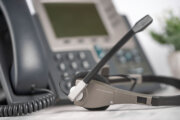It’s that time of year for some lucky people — they’re moving to a warmer state while their house stays behind in the cold.
If you’re new to the world of being a snowbird, you will want to protect your home from the elements. Leaving behind your home for the winter without making sure it’s up to the task could lead to a lot of problems later.
Here’s a checklist to prepare your home for vacancy while you flee the cold:
— Keep your home protected from thieves.
— Turn off your water.
— Keep the heat on.
— Consider the housesitter idea.
— Make your home unattractive to pests.
— Take a tour of your home.
[11 Steps to Winterize a House]
Keep Your Home Protected From Thieves
Half of the fun of spending the winter on a beach somewhere is telling everybody you know that you’re spending the winter on a beach. Still, don’t advertise to the world that you are no longer home.
“Refrain from sharing travel plans on social media to prevent potential burglars from exploiting information about when your house will be vacant,” says Jen Wilbert, assistant vice president of property portfolio at Travelers Insurance in Canton, Connecticut.
Wilbert says it’s important that your house looks occupied while you are away. Consider installing motion-sensitive exterior and interior lights on timers. That way, the lights turn on and off, creating the impression the home is occupied.
But even if you have a heavily wired smart home with cameras everywhere, you may want to consider hiring human help. Wilbert suggests that homeowners arrange for someone to handle snow removal after a storm. You want to do everything you can do to avoid advertising to thieves that you’re not around, and unplowed, untouched, snow-covered drive and walkways are a dead giveaway.
You’ve probably already thought of redirecting mail and newspaper delivery, but if not, or you forgot to do so, take this step immediately.
[Tips for Keeping Your Home Safe and Sound]
Turn Off Your Water
If you don’t turn off your water and a pipe bursts in freezing weather, or springs a leak, you could return to discover that you finally have a swimming pool, only it is indoors. Turning off your water supply is quick and easy, and gives you one less worry while you’re away.
“Pipes can freeze and burst, which could result in water damage throughout the house, destroying floors, furniture, appliances, electronics and storage boxes, as well as expensive lawn equipment and vehicles if the water reaches the garage,” says Clement Feng, vice president of product management for Briggs & Stratton Energy Solutions in Brookfield, Wisconsin.
Within 24 hours, a burst pipe or leak can lead to costly water damage. Water damage repairs typically cost $1,300 to $6,000, depending on the extent of the damage, while mold removal costs about $2,200, according to home improvement network and information company Angi.
Find your home’s shut-off valve. This valve is typically located where the water line comes into the house, usually on an outside wall near the front of the house. This shut-off valve can usually be turned off by hand, according to the El Dorado Irrigation District in El Dorado, California. Turn the valve handle clockwise to turn off all water to the house. If you can’t turn off the valve by hand, call a plumber.
Once you’ve shut off the water, open up your hot and cold lines, preferably on a lower level of the house, to release pressure and test whether the water is truly off.
If you don’t turn off the water, make sure the house doesn’t get so cold that your pipes freeze.
Keep the Heat On
You don’t have to keep it a toasty 72 degrees while you’re away. Feng suggests aiming for between 55 and 60 degrees.
“Fifty-five to 60 degrees while away is a good temperature to prevent condensation or freezing [with pipes],” Feng says. “In general, you want to avoid wide temperature fluctuations in a home. “Ideally, you want to keep a steady temperature because a home is a living, breathing thing that contracts and expands, based on temperature.”
If you don’t have a programmable thermostat, an upcoming vacation is a great reason to get one installed, according to heating and air conditioning company AireServe. Thermostats not only can help you maintain heat levels while you are out of town, but also in your day-to-day life, such as when everyone is at work or school.
AireServe offers these additional suggestions for snowbirds and vacationers:
— Lower the water heater temperature.
— Unplug electronics.
— Adjust refrigerator and freezer settings. Turn your refrigerator down to 38 degrees Fahrenheit and your freezer to 5 degrees Fahrenheit to save on your electricity bill.
— Get automatic timers for lights; letting your light bulbs sit dormant can make them more susceptible to burning out.
[READ: 10 Ways to Save Energy and Lower Utility Bills]
Consider a Housesitter
It may be helpful to have a housesitter or visitor pop over weekly, if not daily, to check on things. If you have a wired, smart home, you can look on your phone at cameras inside and outside your home, just to make sure you don’t see anything that looks amiss.
You may want to consider getting a standby generator, which switches on automatically during a power interruption. Feng — whose company sells standby generators — says if the power goes out for a length of time, such as in a blizzard, your home could have serious issues, such as spoiled food in the refrigerator or freezer. If you have a sump pump, it’s powered by electricity, so without power, you could end up with a flood.
A standby generator “automatically switches on as soon as it senses a power outage. You don’t have to be home to do anything,” Feng says.
For more peace of mind, provide housekeys to a neighbor or a nearby friend or family member who has the ability to come and check on your home if they the power has gone off in your neighborhood.
Make Your Home Unattractive to Pests
Your doors will be locked and the windows bolted, but you could still have squatters living in your home while you’re away — animal squatters.
Wilbert suggests cleaning your home thoroughly before leaving to discourage pests from settling in while you are away. It’s a good idea, even if you aren’t concerned about pests. Nobody wants to come back after a long winter to a messy house.
“Defrost and unplug refrigerators and freezers, leaving doors propped open to prevent mildew, and ensure the oven is clean,” Wilbert says. She also suggests inspecting your home for potential animal entry points, such as ensuring the fireplace flue is closed.
Take a Tour of Your Home
Before you leave for an extended time, walk around your home and look for potential issues. Give yourself enough time after this review to fix any concerns you uncover. Do it again when your bags are packed and you’re heading out the door, mostly for reassurance, but plan ahead to head off any potential problems.
Andrei Jablokow, owner of WIN Home Inspection in Philadelphia, suggests hiring a professional home inspector to take a look at your house before you leave for the winter.
“Certified technicians can identify any issues, such as a malfunctioning thermostat, pilot light problems, insufficient intake air or gas leaks, that might go unnoticed during a DIY inspection,” Jablokow says.
But if you aren’t up for hiring a professional, Jablokow offers a homeowner’s checklist:
— Change the furnace filters. “A clean filter ensures optimal airflow and efficiency,” Jablokow says, adding that if you aren’t doing it, you’re breathing in dirty air. Besides, you’re going to have the heat on, even if it is lowered, and it’s something you should be doing regularly anyway.
— Take a look at your sump pump. “The ground is wet in winter and if your sump pump already operates regularly, it’s a good idea to have the sump pump inspected and tested in case of a large winter storm,” Jablokow says.
— Make sure your windows and doors are closed and locked. The entrances you use regularly are easy, but take time to check every door and window. Leaving a window open, even a few inches, is a perfect way to bring the outdoors into the indoors. Experts also suggest leaving bathroom cabinet doors open to keep air circulating near pipes. This will help keep them warm if it’s extremely cold outside. Keep all of your inside doors open, to dens, bedrooms and other rooms. If all of those inside doors are open, the air in your home will circulate and keep the entire home a little warmer.
The Bottom Line on Leaving Your Home During the Winter
You probably spent months trying to find the perfect winter getaway. You’ll want to spend about the same amount of time making sure your primary home is in good of shape while you’re away. the weather is going to do its thing, and the criminal element and wildlife will be out roaming about, as it always is. Your goal is to enjoy your inviting winter home while making your primary home look as uninviting as possible.
More from U.S. News
How Much Do Energy Efficient Windows Cost?
10 Interior Design Trends for 2024
How to Create a Cozy Wintertime Bedroom
How Snowbirds Can Prepare Their Homes For Winter Vacancy originally appeared on usnews.com







